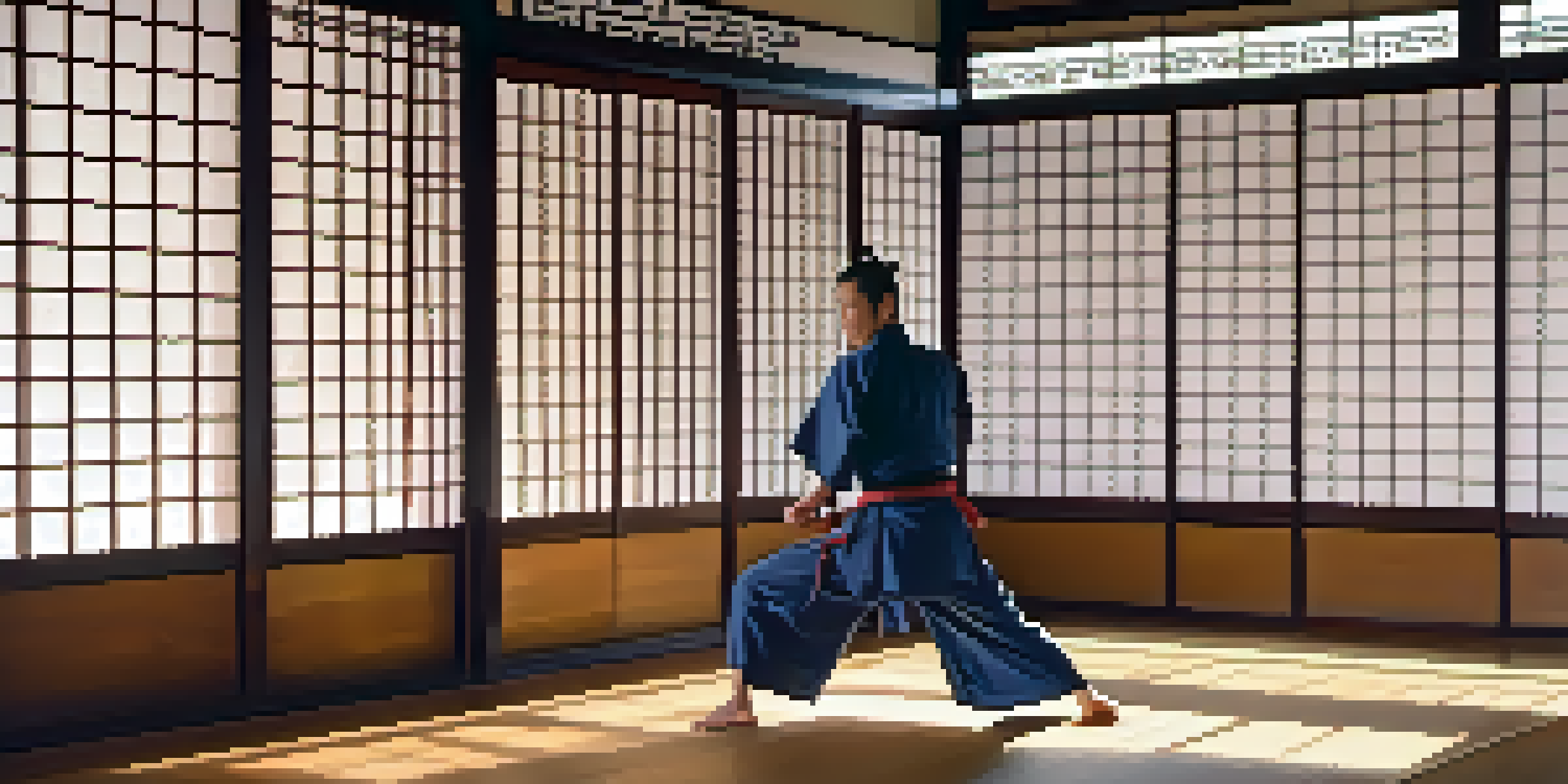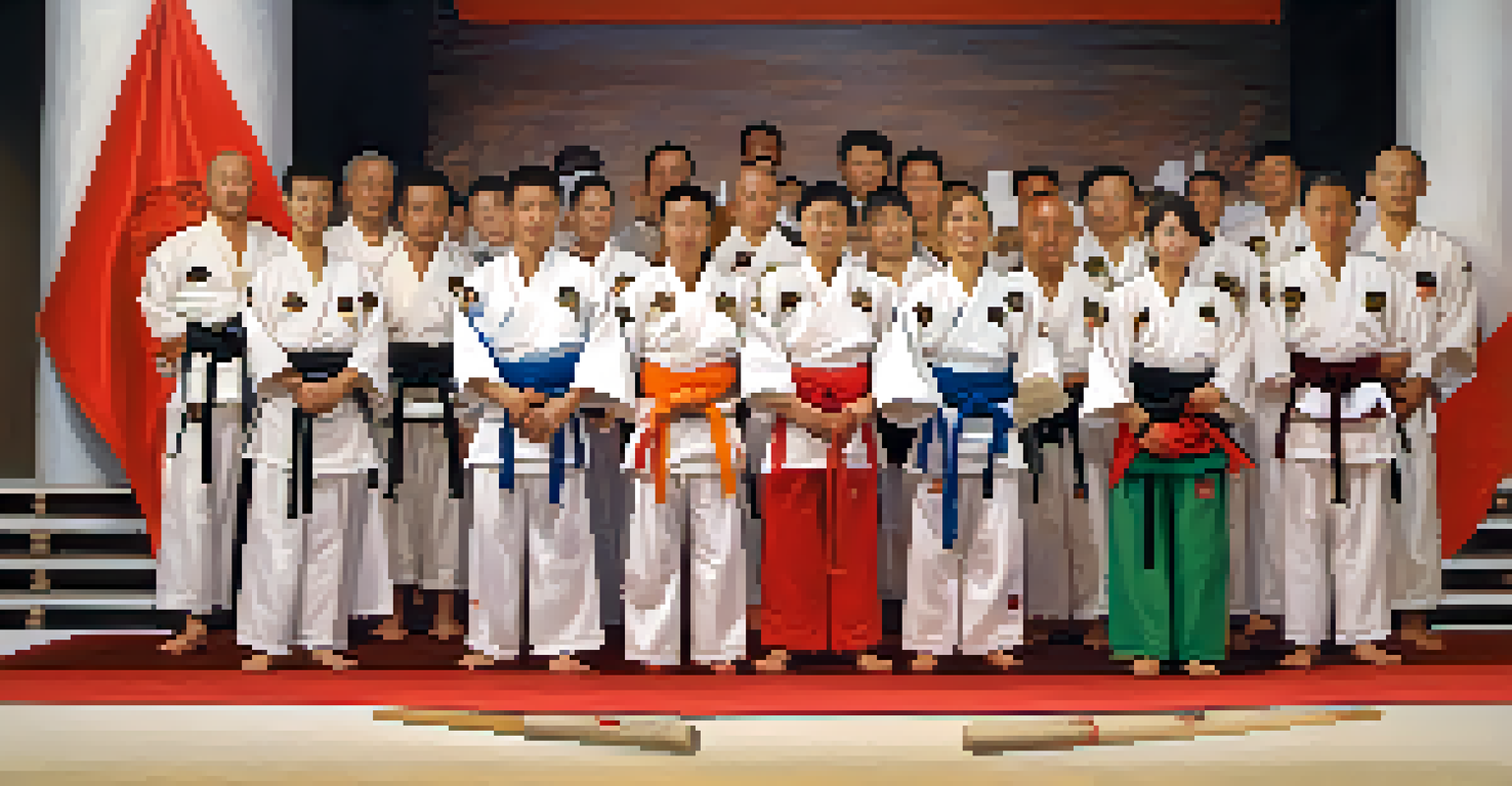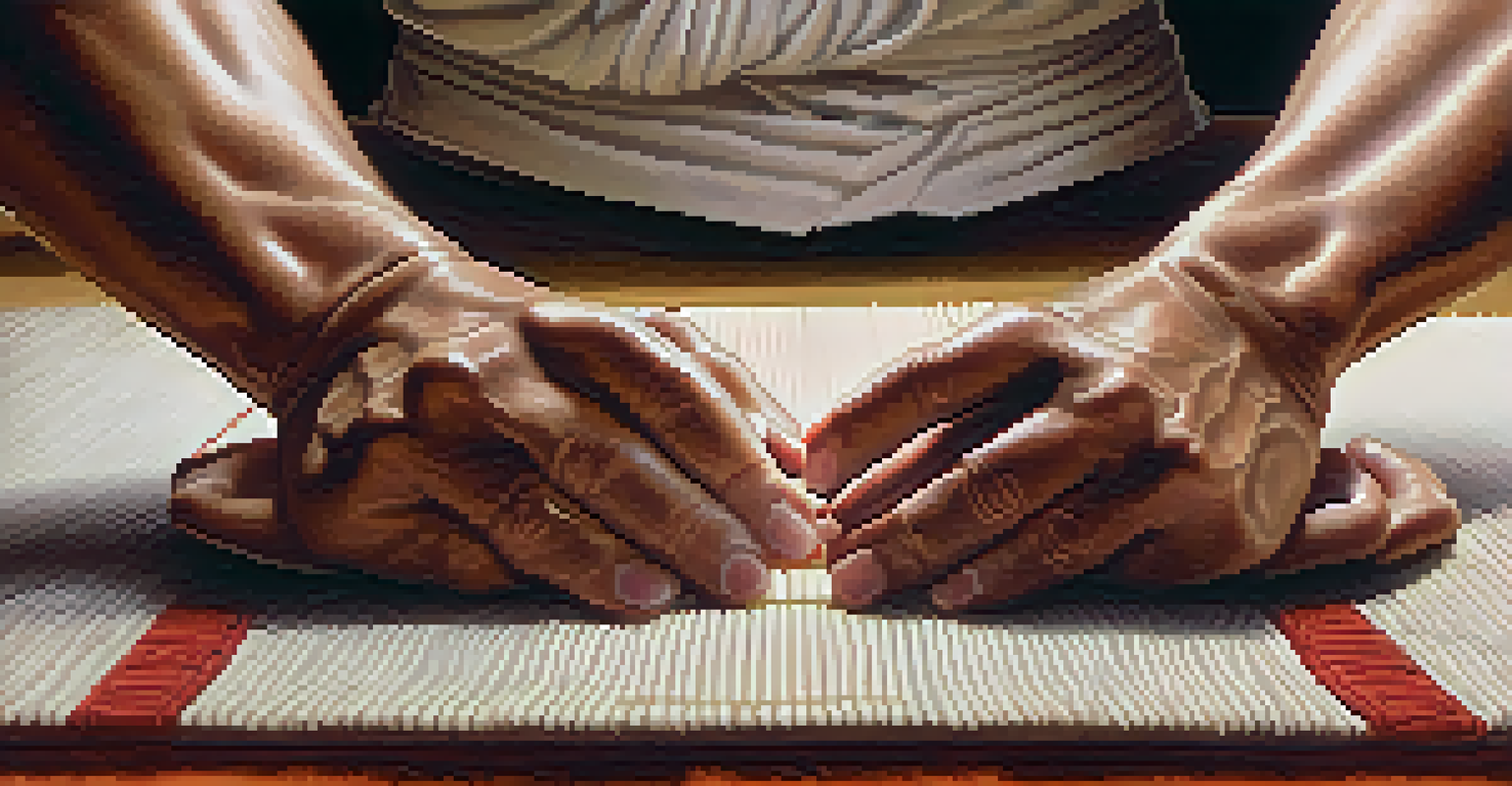The Role of Rituals in the Development of Martial Arts

Defining Rituals and Their Importance
Rituals are structured practices that hold significance within a culture or community. In martial arts, these rituals often serve as a bridge between the physical and the spiritual. They create a sense of tradition and belonging, which can enhance a practitioner's dedication and respect for the art.
Rituals are the formulas by which harmony is restored.
For example, bowing before entering the dojo is not just a formality; it symbolizes respect for the art, the instructors, and fellow students. This act sets the tone for the practice, fostering a mindset of discipline and readiness. Understanding the importance of these rituals can deepen a practitioner's connection to their training.
Moreover, rituals can provide a sense of stability and predictability in the often chaotic world of martial arts. They establish a routine that can help students focus and prepare mentally for their training sessions.
Cultural Significance of Martial Arts Rituals
Every martial art carries its own unique rituals that reflect its cultural origins. For instance, the traditional tea ceremony in Japanese martial arts emphasizes mindfulness and respect, values that are central to many practices. This cultural grounding enriches the experience, making it more than just a physical activity.

Rituals help to preserve the history and philosophy of the martial art, connecting practitioners to generations of warriors before them. This lineage fosters a sense of pride and responsibility, encouraging students to honor the traditions that have shaped their practice. It's like being part of a living history that transcends time.
Rituals Foster Community and Connection
Shared rituals in martial arts create a sense of belonging, motivating practitioners to remain committed to their training.
Additionally, these rituals often carry lessons that extend beyond the dojo. They teach values such as humility, perseverance, and respect, which practitioners can apply in their daily lives.
Rituals as a Tool for Mental Focus
In the realm of martial arts, mental preparation is just as crucial as physical training. Rituals play a key role in enhancing this focus. Whether it's a specific breathing exercise or a pre-training chant, these practices can help center the mind and prepare it for the challenges ahead.
Tradition is not the worship of ashes, but the preservation of fire.
Consider the practice of visualization, where a martial artist imagines their movements before executing them. This ritual not only boosts confidence but also solidifies muscle memory, making the execution smoother. By incorporating mental rituals, practitioners can elevate their performance during competitions or sparring sessions.
Moreover, these mental rituals can alleviate anxiety and stress, contributing to a more enjoyable training experience. A calm mind enhances a practitioner's ability to learn and adapt, ultimately leading to better outcomes.
The Role of Rituals in Building Community
Martial arts are often practiced in group settings, and rituals help to cultivate a strong sense of community among practitioners. Shared rituals, like group warm-ups or ceremonies, foster camaraderie and mutual support. They remind participants that they are part of something larger than themselves.
This sense of belonging is vital for motivation and retention in martial arts. When individuals feel connected to their peers, they are more likely to remain committed to their training. For example, participating in a belt promotion ceremony not only recognizes individual achievement but also strengthens the bond among students.
Rituals Enhance Mental Focus
Engaging in mental rituals helps martial artists center their minds, reducing anxiety and improving performance during training and competitions.
Furthermore, rituals can break down barriers, creating an inclusive environment where everyone feels valued. This inclusivity encourages diverse participation and enriches the martial arts community as a whole.
Rituals and Personal Growth in Martial Arts
Engaging in rituals can significantly contribute to personal growth for martial artists. These practices often challenge individuals to step outside their comfort zones, whether through public demonstrations or leading a class. Such experiences can build confidence and leadership skills.
For instance, performing a kata (a sequence of movements) in front of peers requires not only technical skill but also the ability to focus and present oneself. This can translate into greater self-esteem and a sense of accomplishment, empowering practitioners to face challenges both in and out of the dojo.
Moreover, rituals encourage self-reflection. After a training session, taking a moment to meditate or journal about the experience can foster a deeper understanding of one's progress, strengths, and areas for improvement.
Preserving Tradition Through Rituals
As martial arts continue to evolve, rituals play a crucial role in preserving their rich traditions. These practices ensure that the foundational values and techniques of the martial art are passed down through generations. They act as a safeguard against the dilution of the art's core principles.
For example, many martial arts schools maintain specific rituals during grading examinations to keep the essence of the art intact. This adherence to tradition not only honors the past but also reinforces the identity of the practice for new students.
Traditions Preserve Martial Arts Heritage
Rituals play a crucial role in maintaining the foundational values and techniques of martial arts, ensuring their legacy is passed down through generations.
Additionally, rituals serve as a reminder of the martial art's historical context, fostering respect for its origins. This connection to history can be a powerful motivator for practitioners, inspiring them to uphold the legacy of their art.
Modern Adaptations of Traditional Rituals
While many martial arts rituals are steeped in tradition, some are adapting to modern contexts. As martial arts gain popularity worldwide, practitioners are finding new ways to incorporate rituals that resonate with contemporary values. For instance, some schools have introduced community service as a ritual, emphasizing the importance of giving back.
These modern adaptations can help make martial arts more accessible and relevant, attracting a diverse range of students. By blending traditional practices with contemporary values, martial arts can continue to thrive while remaining true to their roots.

Moreover, these evolving rituals can enhance the training experience, making it more enjoyable and meaningful for practitioners. The key is to balance respect for tradition with a flexible approach to modern needs.